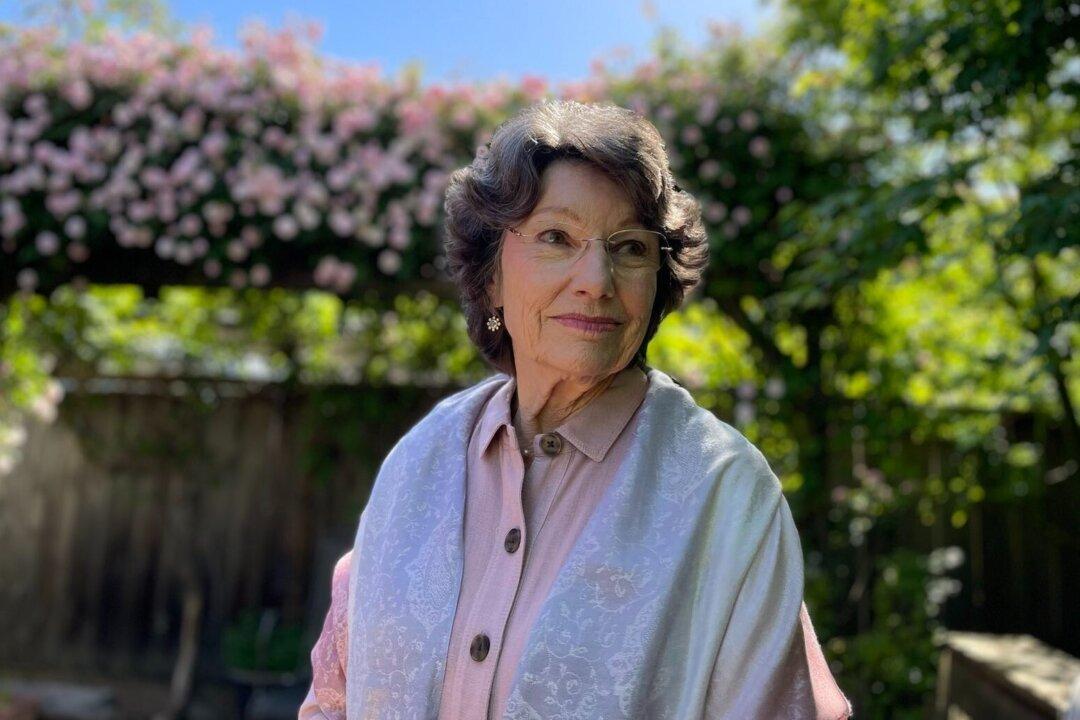Looking back at four decades of her life, Jami Smith struggled to recall a moment when she felt genuinely happy.
She had a troubled childhood filled with abuse and harassment from the people she held dear. From the age of 9, she began experiencing chronic menstrual pains. Problems piled up as she grew older. At 40, her list of health issues was so long that she says her medical record made doctors gasp.
As a mother of six, she barely had enough energy to take care of the children. Migraines plagued her for weeks at a time, sometimes so severely that she would start vomiting as soon as she stood up. Her body would bruise easily, even from simple things such as lifting a pot or crossing her legs. Supplements made her sick. Lying on her left side at night, she listened to her heartbeat. It was so weak that she more than once wondered if it would stop in her sleep.
Day after day, Smith dragged herself through the motions. She got up early to make breakfast and set up homeschooling assignments for the younger three children. Then, she would be right back to bed, wincing in pain.
It bothered Smith that she couldn’t get up to take care of her loved ones and “be there for them.” She wondered if she had anything worth living for.
“At times, I would be in so much pain, I almost wanted to die. It was so miserable,” she told The Epoch Times. “I didn’t understand what the purpose was. I couldn’t take care of my family, so why keep going?”
Sitting on the bedroom floor one day, she cried out to the universe for help—to be a better mother, to be a healthy and happier person, and to make sense of the suffering in life.
“Why do I keep suffering like this? Why is life so hard for me? Why is my quality of life so miserable? I was trying to be a good person, I had that wish to do that, but I didn’t totally understand how to do it,” she said.
An answer did come, although Smith didn’t know it immediately.
About a week or two after she made the plea, Smith stopped at a cultural event out of town, where her family was handed several lotus flowers and a flyer about Falun Gong, a spiritual practice involving a set of meditative exercises and teachings based on the values of truthfulness, compassion, and tolerance.
The flyer hung on a magnetic board in Smith’s kitchen for months as she tried different healing methods, such as tai chi, although none had a lasting effect. In her continued search for a cure, she came across a video about the fact that Falun Gong, which was practiced by an estimated 70 million to 100 million in China, was being persecuted by the Chinese Communist Party.
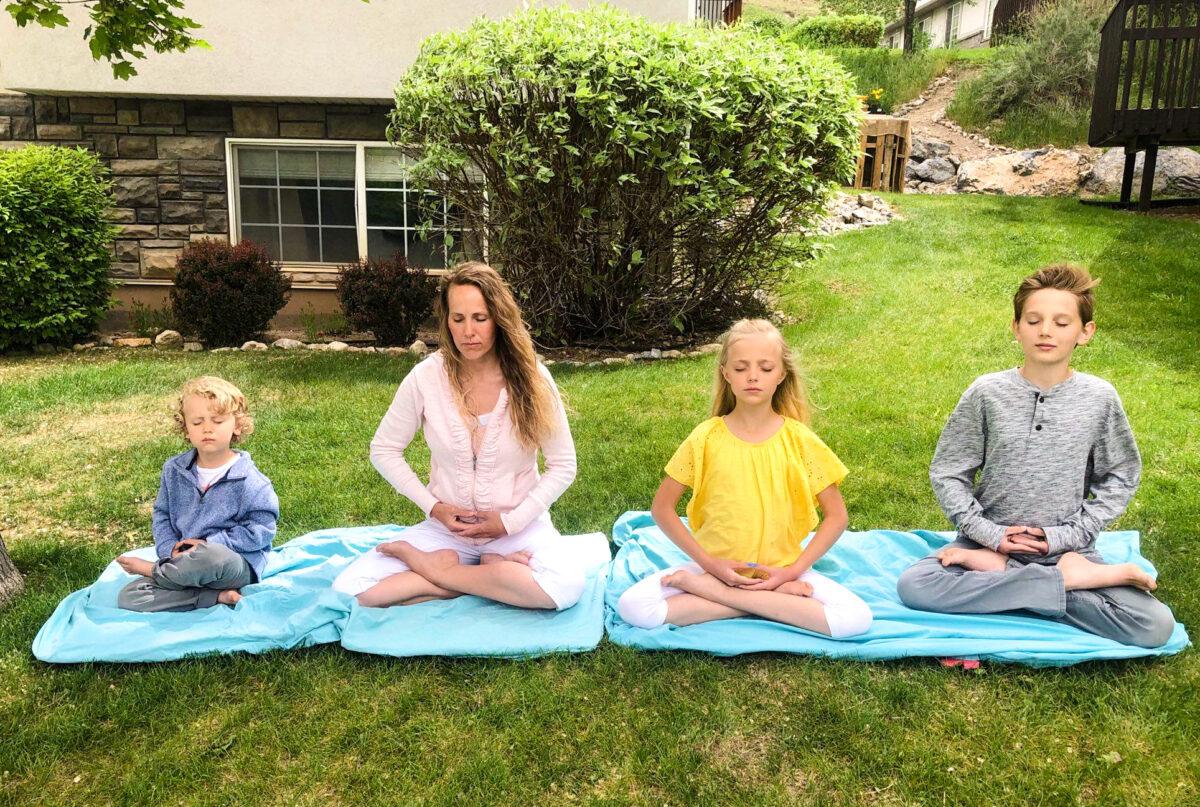
Smith found the flyer that had been sitting there and recognized the name. The next thing she knew, she was reading a book explaining the principles of Falun Gong and trying the exercises, during which she says she felt a kind of electricity going through her hands and arms.
‘There Is an Answer to Everything’
A decade before Smith, acupressure therapist Linda Campbell first learned about Falun Gong and the persecution of its adherents in China through a client. So when she saw a Falun Gong meditation class being offered three years later, Campbell decided to check it out.Campbell, who lives in Sonoma County, California, still remembers that community center classroom near her home looking out onto an oriental-style garden with ornamental stones. After learning the exercises, the assistant there handed her an introductory book that she finished within three days. She then read the practice’s main book, “Zhuan Falun.”
Reading that text took a lot longer but left her “just in awe.”
“The book covered so much,” she told The Epoch Times. “All my life, I had been studying and looking into different kinds of metaphysical things” for answers about life and the universe, “and it was all in ‘Zhuan Falun.’”
It made her feel more solid and comfortable with life—as if she had “come home to something.”
“When anything comes up, I just know that there is an answer to everything, and there is going to be a way through it,” she said.
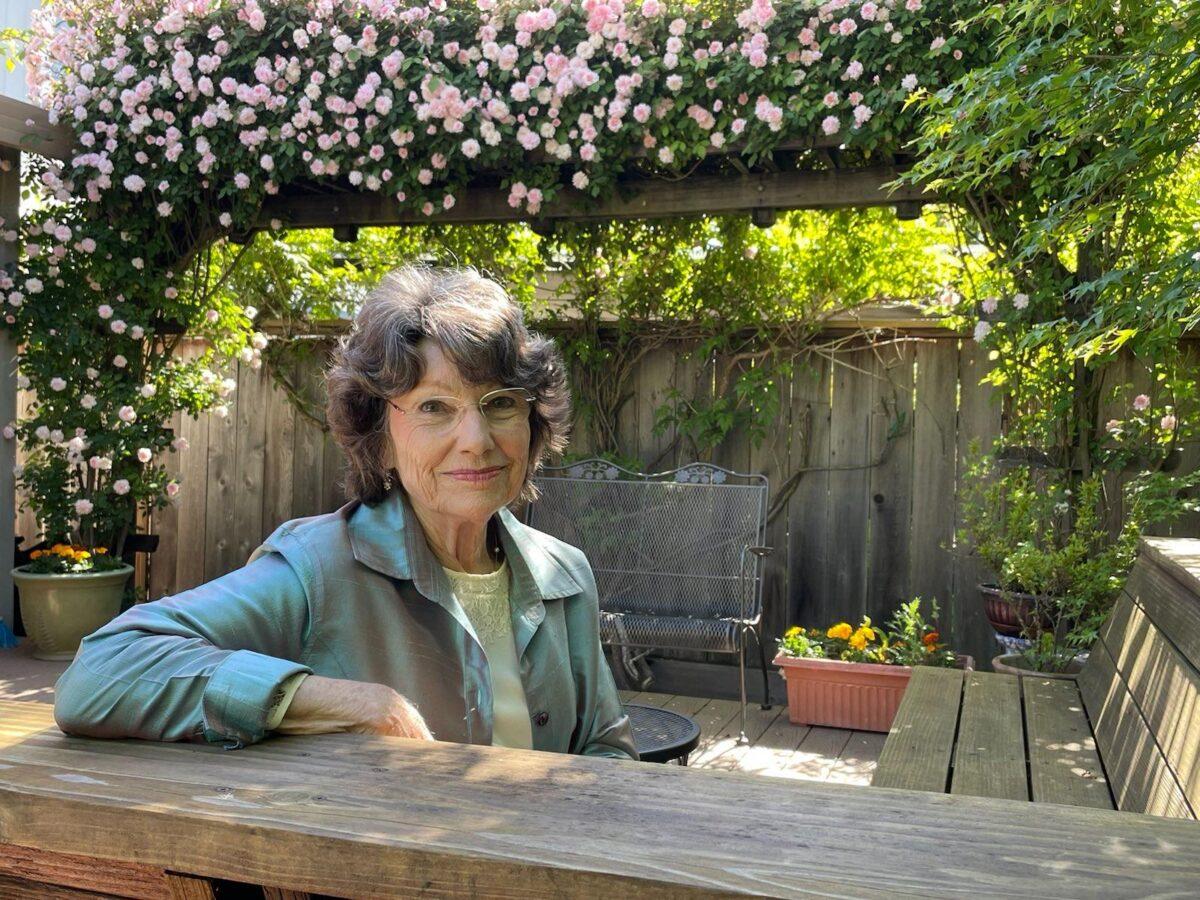
Saying that is easier now for Campbell compared to eight years ago, when she was confronted with a months-long ordeal.
It began with her neighbor asking to rebuild a shared, battered wooden fence. Campbell, who agreed to the plan and to split the cost, was vexed by the finished project. In place of the once-straight line was a crooked fence angling downward, looking clumsily out of place from her kitchen window.
To Campbell, who had worked from home most of her life and enjoyed visual harmony and balance, the fence was a constant source of irritation. She felt wronged and despondent, believing the builder and the neighbor had worked together to make her life miserable.
It took her about eight months to turn her thinking around.
Failing initially to persuade her neighbor to redo the fence, she devised ways to mitigate her view. She installed a custom-made window covering to obscure her view of the fence, and planted bushes along the fence to further hide it.

Once she stopped focusing on her own feelings, the fence ceased to be a problem. In the end, her neighbor declined to let her pay and covered the entire expense—which roughly came down to what she paid for the window covering.
“Everything just ended up seeming like it was such a small issue—there were solutions to all parts of it,” she said. “It wasn’t a big thing, and I had made it this huge, huge issue.”
Now, if faced with a similar challenge, Campbell has a different way of handling it.
Healing
A month before the pandemic hit, Nick Haley, a college junior studying biomedical sciences at the University of Cincinnati, was considering dropping out of school.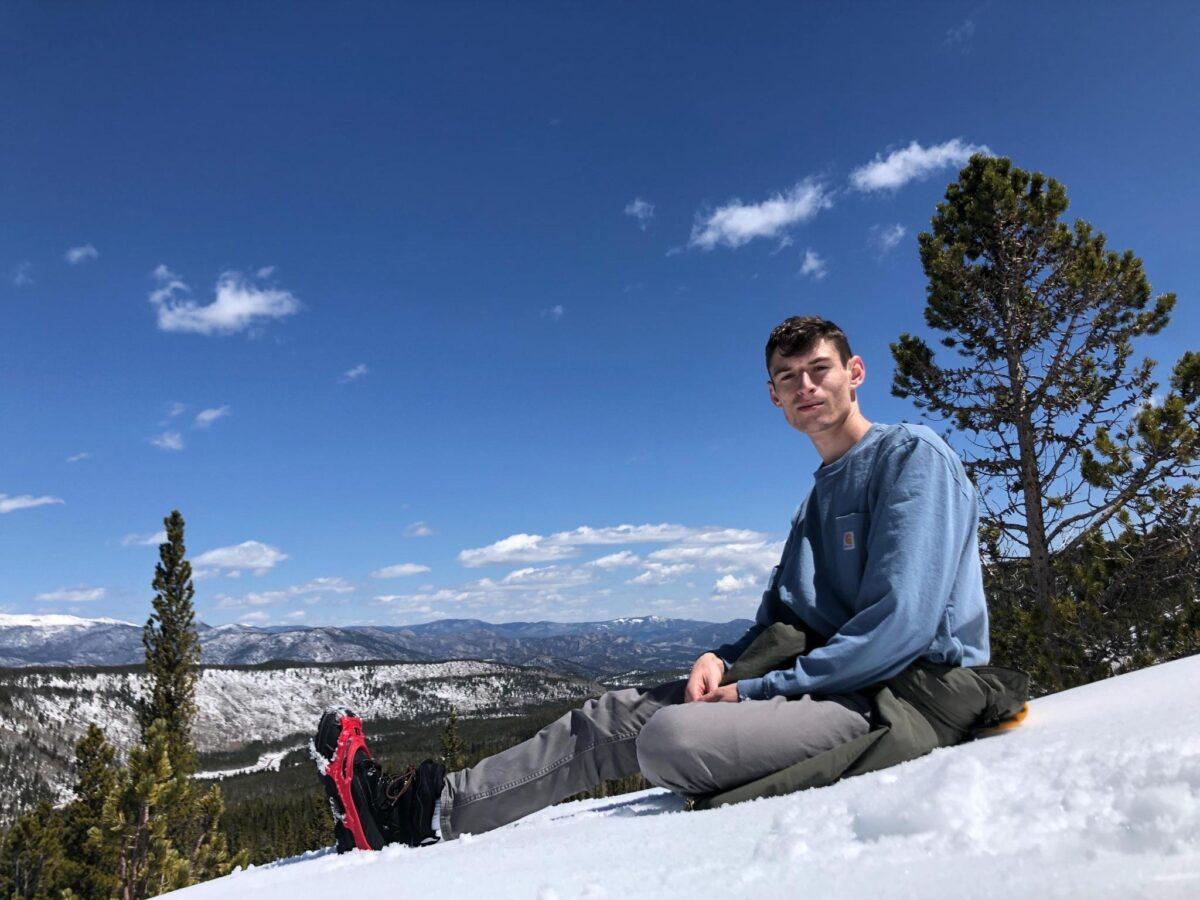
Haley had gone on a cross-country road trip to California the previous summer, traveling through snow-capped mountains and deserts to escape the world, hoping to figure out what he wanted in life.
Despite all the scenic attractions checked off his list, he felt the trip fell short of what he'd expected.
“I felt that if I had this experience, I‘d feel fulfilled, but it was never quite as satisfying as I’d hoped it would be,” he told The Epoch Times.
Haley kept looking, although not exactly sure what he was looking for. He looked into yoga, took a class on Buddhism, and read about stoicism and the classic Chinese text Tao Te Ching.
Then, in the week after he dropped out of school, a co-worker introduced him to Falun Gong.
“It was almost like being plugged in,” he said, recalling his experience of reading a Falun Gong teaching for the first time on his phone. “It was really relieving, and I felt like I had just come up for air after being underwater for a really long time.”
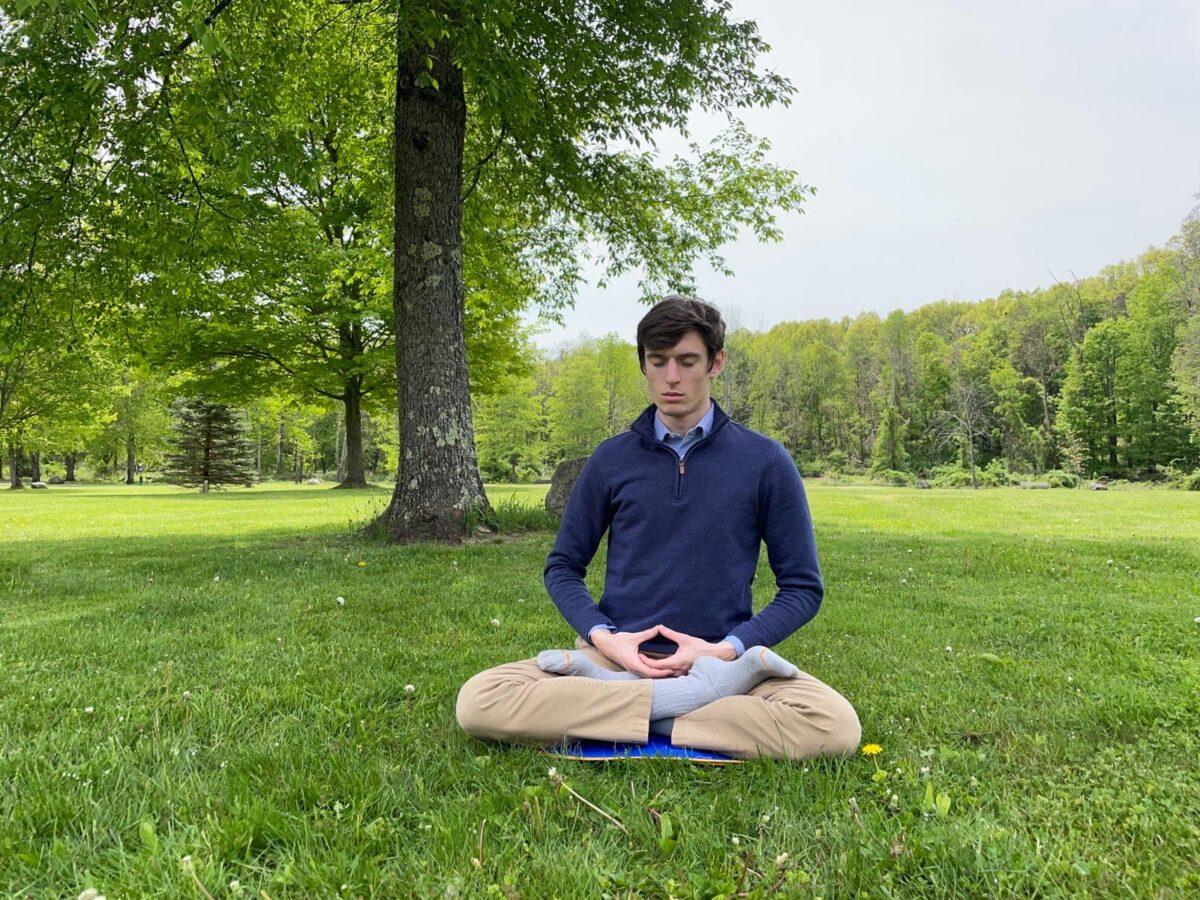
Right from the second paragraph, he found an answer to his search.
“It’s all about working on your character,” he said. “It was just very clear that’s what it was all about. It was about working on yourself. And that was the purpose.”
In high school, Haley had felt disappointed when his religion teacher couldn’t explain why people suffer like they do if gods look after them. While still in grade school, Haley’s parents began a years-long divorce battle that left the two unable to be at the same events for years.
Haley struggled to forgive both of his parents as he was growing up. But since practicing Falun Gong, he said, his thinking changed.
“I realized how difficult it was to change my own mindsets on things and my own imperfections, and that helped me let go of a lot of the resentment I had about my parents’ imperfections and about the mistakes they made,” he said, adding that painful experiences like those had helped him become more empathetic toward others.
‘This Is New’
While six months pregnant in 1997, Smith was hit by a car while crossing the road. The car hit her in the back so hard that she was thrown into the air, before landing on her tailbone.Smith’s baby—a boy—didn’t move for several hours, although he eventually was found to be unharmed. Smith, however, suffered serious lower back injuries that kept her in bed for weeks and gave her lasting back troubles. Her back hurt so much that at one point, she fell to the floor in her kitchen, unable to move her legs.
That, in addition to her other health problems, made learning movements no small feat.
In increments of 10 to 20 minutes, Smith practiced the Falun Gong exercises, working her way up to being able to sit through a full hour of meditation with her legs crossed in a double lotus position. At times, she cried because “it was so painful.”
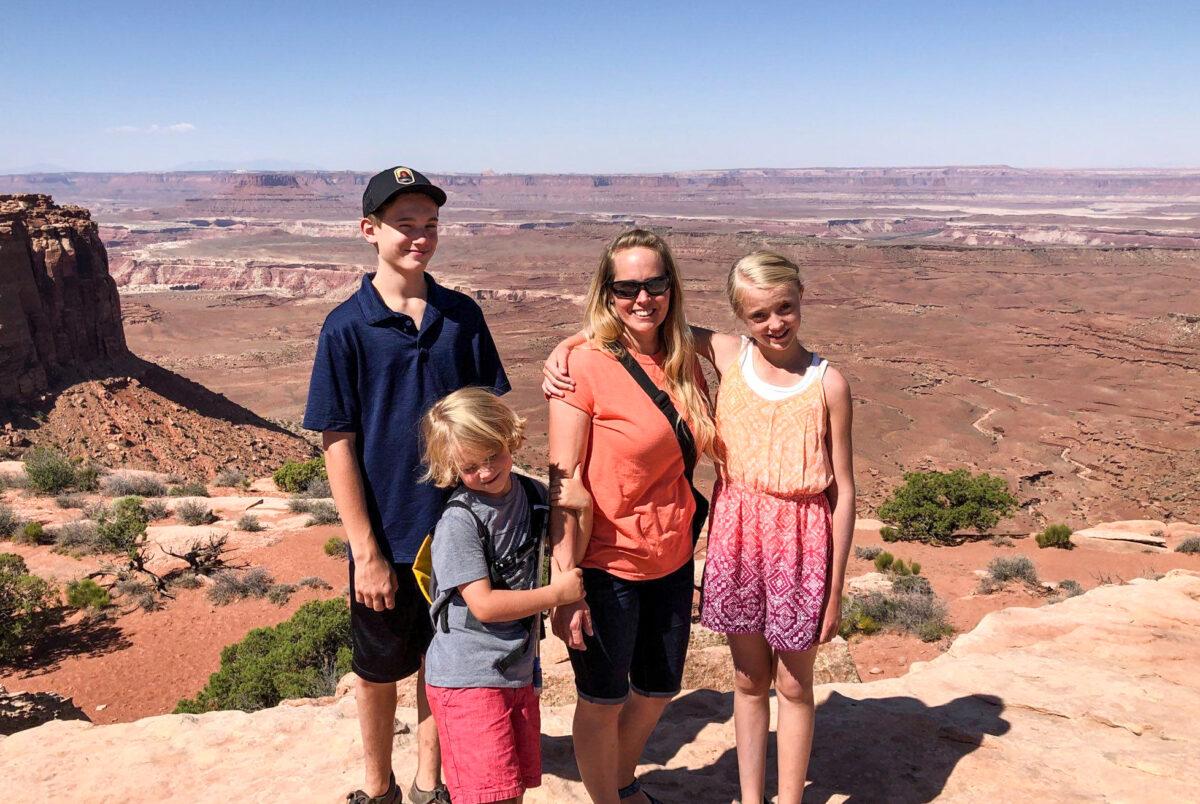
While she always tried to block the pain out of her mind, it took about a year for Smith to be able to do the hour-long meditation. Meanwhile, she noticed that in her daily life, she no longer experienced the debilitating back pain and could often easily sit with her children.
“It would just dawn on me: ‘Hey, I feel pretty good. This is new. This works,’” she said.
Other health issues gradually melted away, and Smith found herself finally able to “be part of [her] family,” cooking meals for them, laughing together, playing games, and shopping for groceries, something that used to give her anxiety.
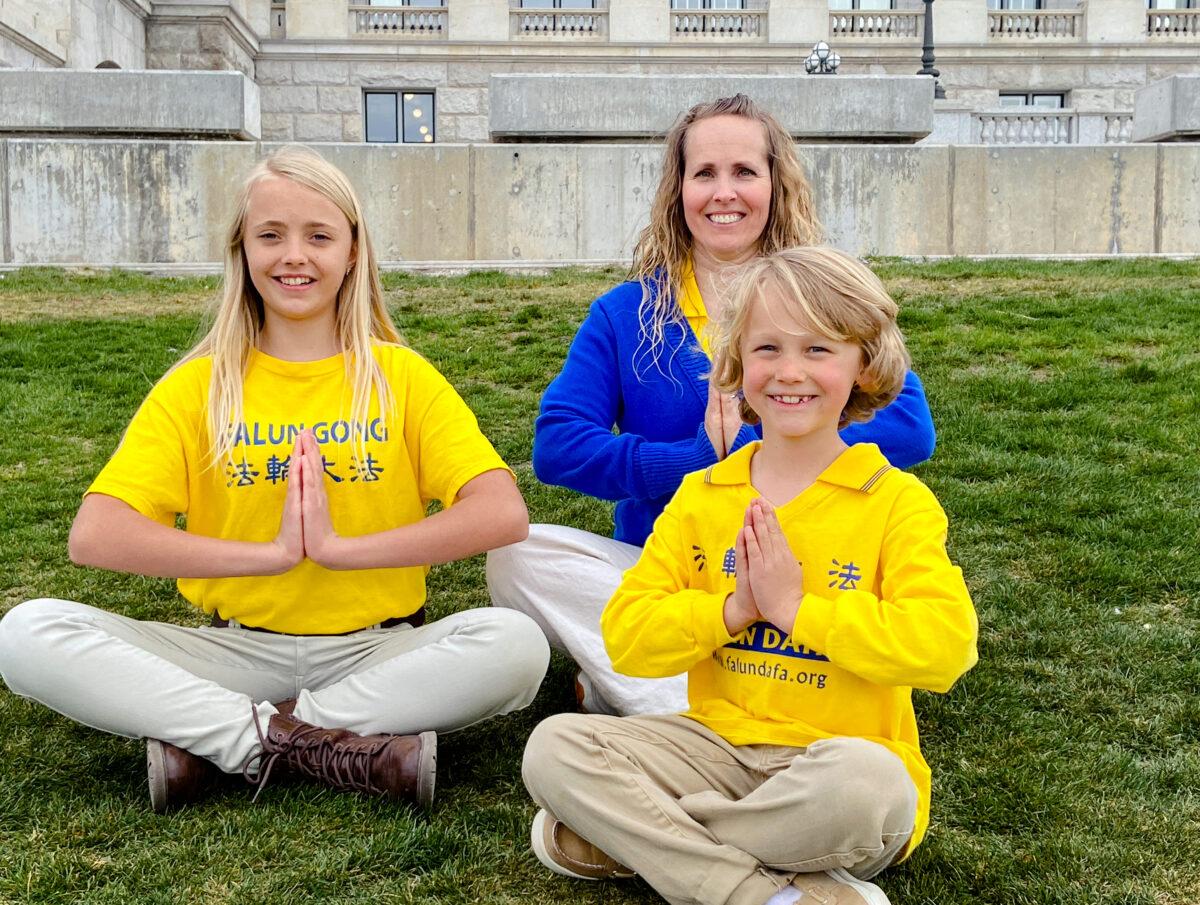
One consequence of the 1997 car accident was her fear of driving. If someone cut her off on the road, she would hold tight to the steering wheel in panic. That fear eventually dissipated as she continued to practice the exercises.
During a 1 1/2-hour drive to Salt Lake City this past winter with four of her children, Smith was caught in a heavy snowstorm. It was windy, the visibility was low, and the children were loudly arguing with each other. Smith, instead of panicking, suggested that the children think about something nice they had done for each other.
“That changed the whole drive,” she said. “Everybody was happy the rest of the way.”
Smith has surprised herself in situations like that by applying the mindset of “thinking more compassionately toward one another and reminding each other of that.”
“It’s one of these aha! moments where I just go, ‘Wow, you know, I did that,’” she said. “‘I showed more compassion and I didn’t blow up, and it didn’t escalate into something that it would’ve before.’ That happens all the time.”
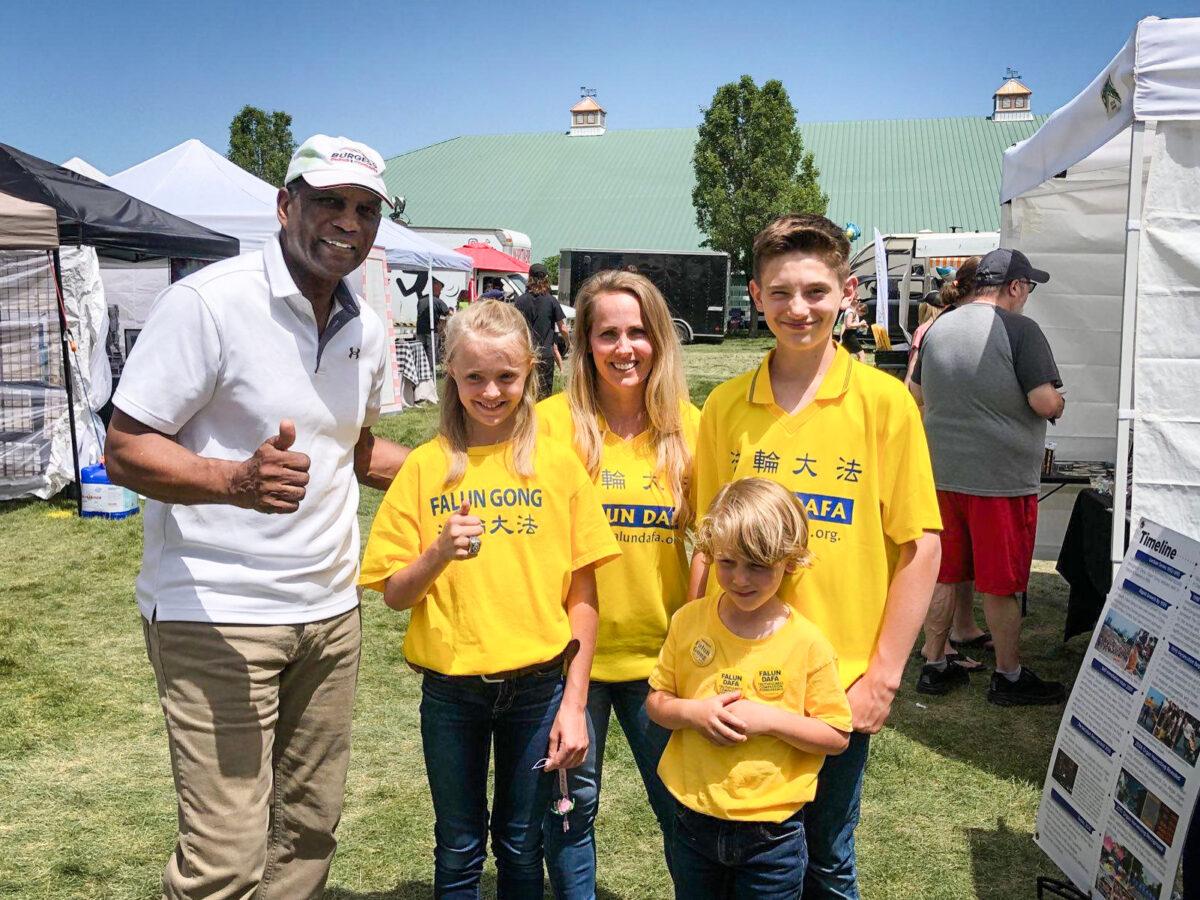
A Sense of Purpose
In the summer of 2020, Haley decided to go back to school.“I wanted to finish what I started,” he said. “I felt like I just needed to focus on that rather than trying to plan out my whole life.”
Just weeks after graduating, Haley took a job as a research and communications officer for Falun Dafa Information Center in New York. He credited his degree with teaching him the essential skills to do what he needs: diving into unfamiliar subjects without feeling daunted, and knowing that he can learn what he needs to know on the go.
He still enjoys having new experiences, but it’s no longer about the experience itself.
“It’s not like my happiness depends on it anymore,” he said. “It’s just an added life experience, like a bonus, rather than what gives my life meaning.”
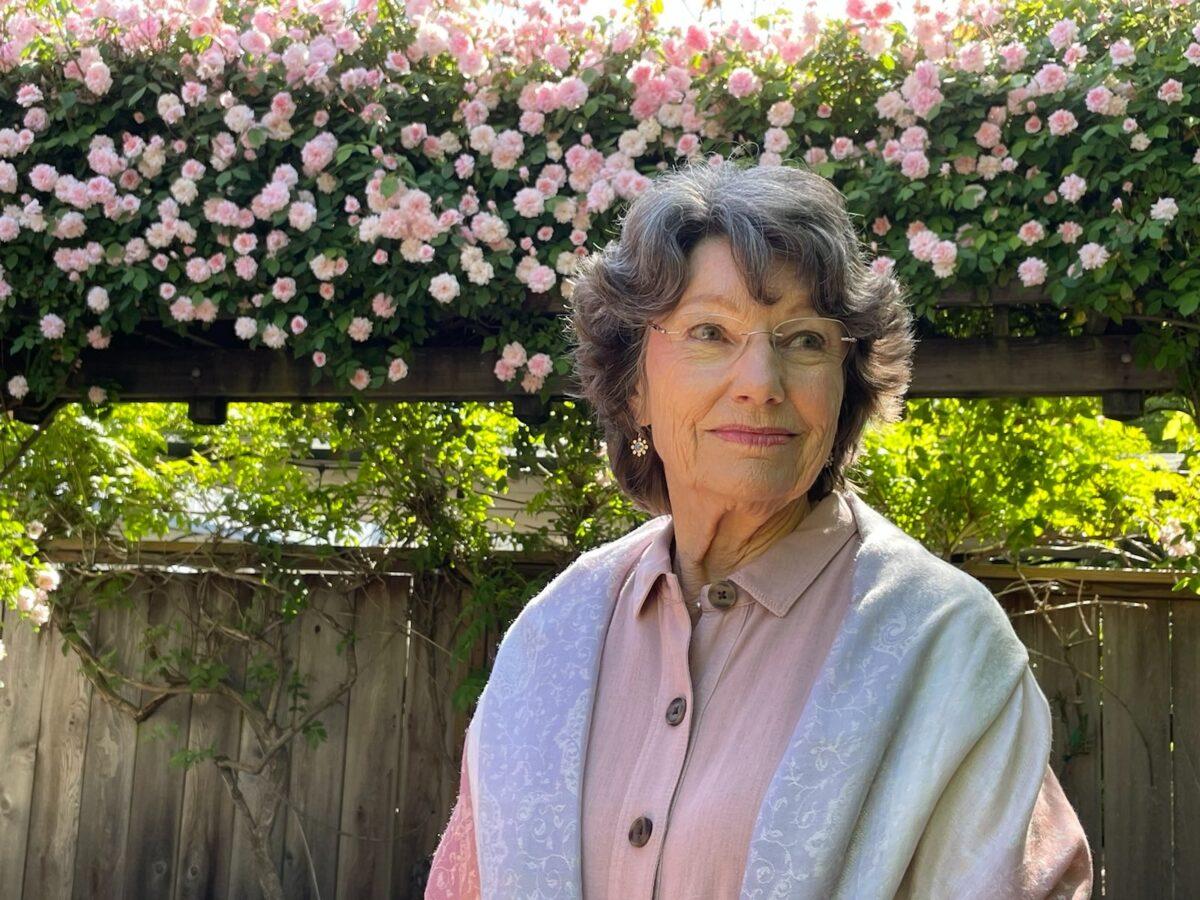
Campbell, who’s now retired, recently went to a World Falun Dafa Day event in San Francisco, to celebrate the 31st anniversary of the founding of the faith, as well as the birthday of Falun Gong’s founder, Mr. Li.
“I just feel like I have this wonderful family,” she said, adding that she felt “so joyful in kind of a quiet way” to know so many people—no matter where they are in life—are all “working hard to improve.”
“All this has just been such a wonderful thing in my life,” she said.
And that fence? Bushy, silver-green shrubs have grown over it.
“You wouldn’t even know that there was a fence behind it or that there was any issue at all.”
